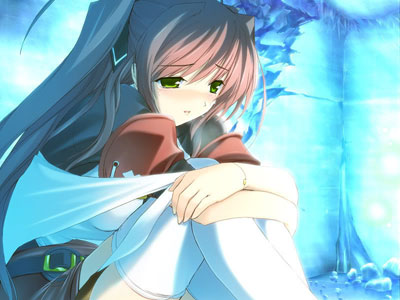All Nonfiction
- Bullying
- Books
- Academic
- Author Interviews
- Celebrity interviews
- College Articles
- College Essays
- Educator of the Year
- Heroes
- Interviews
- Memoir
- Personal Experience
- Sports
- Travel & Culture
All Opinions
- Bullying
- Current Events / Politics
- Discrimination
- Drugs / Alcohol / Smoking
- Entertainment / Celebrities
- Environment
- Love / Relationships
- Movies / Music / TV
- Pop Culture / Trends
- School / College
- Social Issues / Civics
- Spirituality / Religion
- Sports / Hobbies
All Hot Topics
- Bullying
- Community Service
- Environment
- Health
- Letters to the Editor
- Pride & Prejudice
- What Matters
- Back
Summer Guide
- Program Links
- Program Reviews
- Back
College Guide
- College Links
- College Reviews
- College Essays
- College Articles
- Back
Fate/Zero
Fate/Zero, an anime series written by Gen Urobuchi, explores each combatant in the Fourth Holy Grail War, a magical contest for a wish-granting artifact. Specifically, it focuses on Emiya Kiritsugu, who once aspired to save everyone but now believes that to achieve peace, some people must die. He finds the Holy Grail; to his horror, though, the artifact can only grant wishes using the holder's methodology, and Emiya sees apocalyptic visions where everyone dies as their interests come into conflict. One group begins to clamor for blood, and the Grail kills them to preserve the peace. Then, the remaining group fragments, and the process continues until only Emiya and the Grail remain.
Fate/Zero argues that ideology too often blinds even utilitarians. Emiya’s immediate inclination toward violence only results in peace through the destruction of all who could fight. While preemption and sacrifice sometimes bring the greatest good for the greatest number, they often bring naught but death.
However, Fate/Zero is careful not to universally condemn Emiya’s tactics. It introduces some perspectives, often from the darkest branches of egoism, which must be destroyed utterly if one is ever to find peace. When Kirei Kotomine moves beyond the black-and-white moral judgment of his faith, he hurts people for fun, as he has few interpersonal relationships to temper his sadism. Meanwhile, Gilgamesh, a historical spirit Kirei summons, sees neither good nor evil, merely pleasure, and regards both others’ pain and their elation as means to his own happiness, killing when he desires. Fate/Zero argues that to achieve one’s aims, one must employ tactics situationally while holding out hope for one’s ultimate vision. Violence cannot always be the answer, even if it is used with the highest possible intentions, but pacifism relies on illusions Emiya discards in light of Kirei's sadistic sociopathy.
I would strongly recommend this show for anyone who likes to think while watching TV. In addition to its musings on the tactics of peace, it discusses honor, love, and the qualities of a king. Don't let this scare you away if you only watch for action, though; the fight scenes are well-written and feature heroes of legend. The only people to whom I would not recommend this show are those with no stomach for blood and gore, as it has both in spades.

Similar Articles
JOIN THE DISCUSSION
This article has 0 comments.
